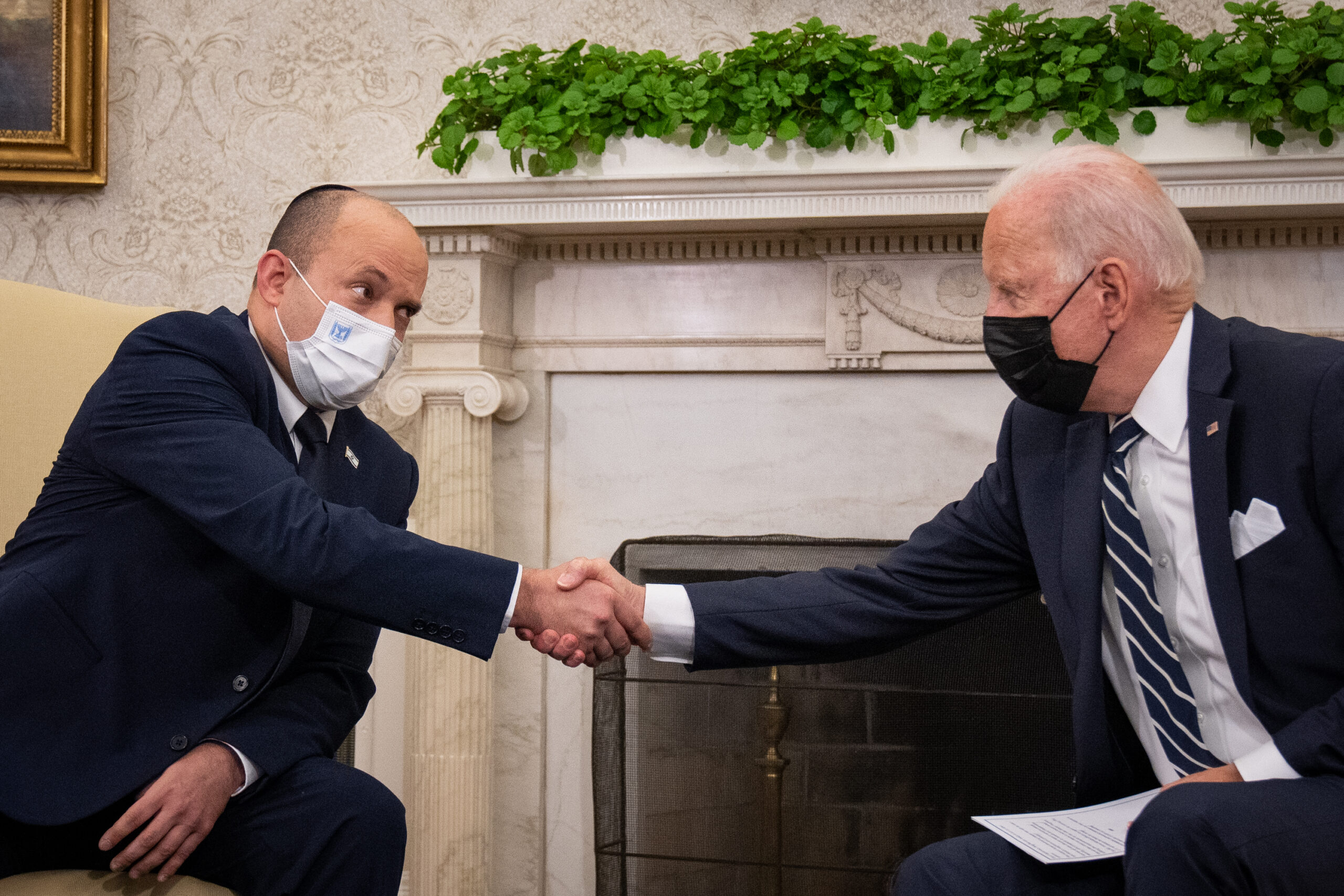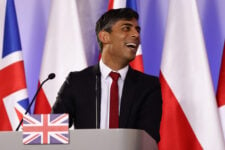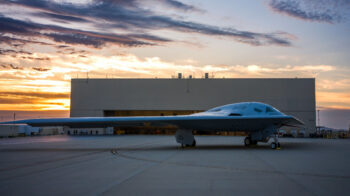
US President Joe Biden meets with Israeli Prime Minister Naftali Bennett in the Oval Office at the White House on August 27, 2021 in Washington, DC. (Sarahbeth Maney-Pool/Getty Images)
TEL AVIV: Israeli officials visiting Washington last week were met with a request to tighten intelligence cooperation between the CIA and the Mossad, in light of the US exit from Afghanistan, government sources here tell Breaking Defense.
The focus of the improved intelligence sharing — details of which sources would not divulge — comes amid renewed fears that the ISIS terrorist group will use Afghanistan as a hub for new attacks on both American and Israeli targets. ISIS-K, the Afghanistan-focused branch of the terror group, has been blamed for a suicide bombing at the Kabul airport that killed over 200 people last Thursday, including 13 American military personnel.
Israeli sources said that there are “indications” that terror acts are already in planning by ISIS and its different proxies, now emboldened by the success of the Kabul strike and the visual of America being pushed out of Afghanistan.
Experts have raised concerns that America’s intelligence network in Afghanistan would be crippled as the Biden administration left the country, with little human intelligence left behind and a potential lack of signals intelligence on the horizon. On paper at least, Israel’s large covert operation in the region could help supplement American intelligence efforts in Afghanistan and elsewhere.
“The Americans are aware of these Israeli capabilities that can be lifesaving, even in faraway places” one of the Israeli sources told Breaking Defense. The source added that the Mossad is particularly adept at taking raw data and turning it into action items, claiming that “the people in the Israeli intelligence bodies see the small details that in many cases are crucial” to stopping terror attacks.
In 2 successful raids against Daesh, our SDF partners w/the @Coalition's ISR support, were instrumental in arresting 5 terrorists & seizing weapons & equipment east Deir Ez-Zor. Together, we remain united in our pursuit of ensuring the lasting #DefeaDaesh. #StrongerTogether https://t.co/Hp3nDW8IC6
— Inherent Resolve (@CJTFOIR) August 31, 2021
Ephraim Halevy, a former head of the Israeli Mossad, told Breaking Defense that there are very tight relations between terror organizations in countries on the Israeli borders like Syria and Lebanon and similar organizations in the “international arena.”
He said that by closely following the actions of the terror organizations in neighboring countries, Israel gets intelligence that “is very vital to our allies” and that would not be available without human intelligence sources on the ground.
Asked for comment, a spokesperson for the American embassy in Jerusalem said “we don’t comment on intelligence issues.”
Notably, the discussion about increased intelligence ties between the two countries comes after the American CIA director, William Burns, visited Israel earlier this month — and then made a surprise trip to Afghanistan to meet with Taliban leadership.
The discussions took place while Israeli Prime Minister Naftali Bennett was in Washington last week to meet with President Joe Biden. The meeting, originally scheduled for Thursday, was postponed to Friday because of the Kabul attack.
During the Washington meeting, Bennett carried with him a pair of requests: that the US open up Foreign Military Financing dollars to help Israel more quickly purchase new F-15 fighters, and that the US help with procuring extra Iron Dome interceptors. The latter has become necessary after nearly 4,000 rockets were launched by Hamas during the Israeli-Palestinian conflict earlier this year.
Israel is seeking around $1 billion in new funds to cover both the Iron Dome needs and for “special munitions” for the Israeli Air Force.
While Bennett’s delegation left without receiving a firm commitment on either funding issue, a US readout of the meeting did highlight Biden’s “full support for replenishing Israel’s Iron Dome system.”
Following the private meeting, the two made short statements to the press. Among other things the American president said was that the US is committed to ensuring Iran does not develop a nuclear weapon — but he did not back away from his administration’s hopes for a political solution.
“We’re putting diplomacy first and seeing where that takes us,” Biden said. “But if diplomacy fails, we’re ready to turn to other options.”
Sullivan says Ukraine supplemental should cover all of 2024, long-range ATACMS now in Ukraine
“We now have a significant number of ATACMS coming off their production line and entering US stocks,” Jake Sullivan said today. “And as a result, we can move forward with providing the ATACMS while also sustaining the readiness of the US armed forces.”


























